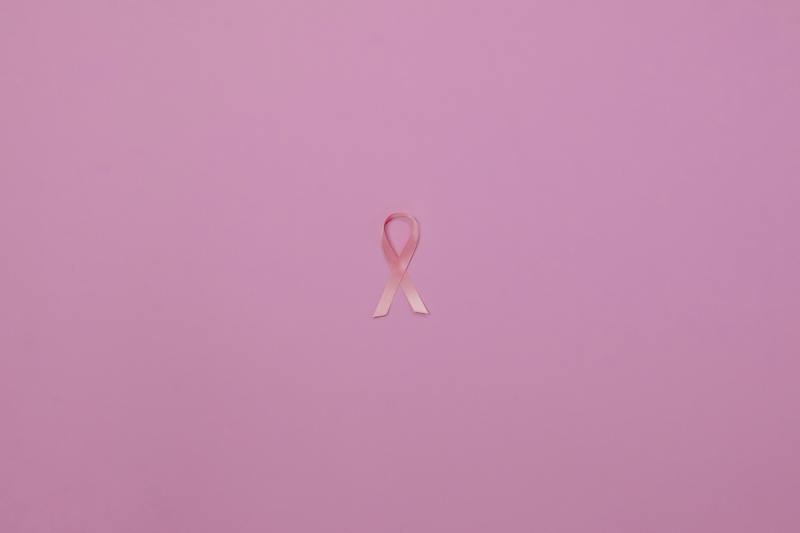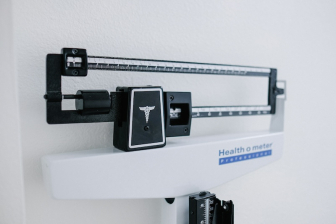Can erdafitinib treat breast cancer? The latest data, in simple terms.
Last updated: 19 March 2024

You can legally access new medicines, even if they are not approved in your country.
Learn howBalversa (erdafitinib) was first approved by the FDA in 2019 to treat advanced metastatic bladder cancer (urothelial cancer)1. Since then, a number of clinical studies have looked at its potential role in treating other conditions. These include breast cancer, endometrial cancer, non-squamous NSCLC, pancreatic cancer and more 2.
In this article, we'll look at the reason erdafitinib may be applicable to more cancer types. And we'll specifically zoom in on the potential use of erdafitinib for breast cancer. Including the latest clinical trial data, approval outlook, and more.
What is erdafitinib approved for?
Balversa (erdafitinib) is currently only approved for use in adult patients with bladder cancer (urothelial cancer) that has spread or cannot be surgically removed. This approval only applies to the USA, as Balversa waits for its EMA approval.
The medicine is indicated for patients with an abnormal FGFR gene, after at least one prior round of systemic therapy. Balversa (erdafitinib) is not recommended for patients who are eligible for and have not received prior PD-1 or PD-L1 inhibitor therapy 3.
Mutation, not location: a cancer-agnostic treatment
To fully understand Balversa's potential in cancer treatment, you must know that it's a type of treatment called tumor-agnostic. This means that the medicine doesn't focus on where the tumor is, but on the genetic changes associated with it. As such, erdafitinib could be applicable to any tumor as long as it has abnormalities in the FGFR genes.
FGFR genetic mutations affect 5-10% of all cancers. Breast cancer is one of the most commonly affected, with about 18% of all cases showing FGFR alterations 8.
Can erdafitinib be used for breast cancer?
Balversa (erdafitinib) is not yet approved anywhere for the treatment of breast cancer. This being said, some clinical trials are already making data available regarding a potential role of the medicine in breast cancer treatment. Here's what we know.
How effective is erdafitinib for breast cancer?
To get an idea of erdafitinib's success rate in breast cancer treatment, we'll look at a few of the clinical trials, for which data is available. Remember, in all these studies, the focus is on breast cancer with FGFR mutations.
RAGNAR trial
The Phase 2 RAGNAR trial focused on heavily pretreated patients with breast cancer and 15 other types of advanced solid tumors with FGFR gene alterations 4. 5% of the patients included in the study had advanced breast cancer with FGFR 1 or FGFR 2 fusions and mutations.
Based on the report results of the RAGNAR trial, this is what we know about Balversa's success rate in breast cancer:
- 31% of breast cancer patients treated with erdafitinib had their tumor shrink or disappear;
-
The disease control rate for breast cancer patients was 69%. Meaning that patients either had a stable disease or responded to the treatment;
-
Common severe side effects related to Balversa included stomatitis, diarrhea, and palmar-plantar erythrodysesthesia syndrome 5.
Phase 1 trial (Meyer et al)
An early-stage clinical trial by Meyer et al. looked at the safety, tolerability and efficacy of Balversa in combination with chemotherapy in heavily pre-treated patients with ER+, HER2-, FGFR-amplified metastatic breast cancer 6. These are some of the reported results:
-
Out of 18 patients, 8 had stable disease, 7 had disease progression, and 3 did not complete their first tumor assessment;
-
The clinical benefit rate (CBR) was 28% at 6 months after start of treatment. In simple terms, the CBR is defined as the rate of patients who had any benefit from the intervention;
-
The median progression-free survival (PFS) was 3 months. However, it's reported that for the patients with high levels of FGFR1 amplification and those with FGFR3 amplification, the PFS was 6 months 6.
On the basis of these reported results, a phase 2 trial is being planned6.
Phase 1 trial (Bahleda et al)
This early trial included a total of 187 patients with a variety of conditions. Of them, 36 had breast cancer. Here are the reported efficacy results for them:
-
The objective response rate for breast cancer patients was 9%;
-
Safety was not separately evaluated for breast cancer patients. The overall most common adverse effects were hyperphosphatemia, dry mouth and stomatitis 7.
When will erdafitinib be approved for breast cancer?
Based on the data shared earlier, more research is needed before erdafitinib is ready for regulatory approval for breast cancer. Hopefully, the multiple ongoing studies looking at Balversa will help us understand its true potential as a cancer-agnostic treatment.
Can my doctor prescribe erdafitinib for breast cancer?
The best answer currently is, maybe.
Although technically your doctor has the authority to prescribe erdafitinib for breast cancer before it's approved, they will probably be unlikely to do so. At least until more evidence from clinical trials is available.
Has your doctor made the decision to prescribe Balversa (erdafitinib) for the treatment of your breast cancer? Our team at Everyone.org can help you access the medicine. We specialize in sourcing and delivery of prescribed medicines unapproved or unavailable in a patient's country. Contact us, so we can help you.
References:
- FDA grants accelerated approval to erdafitinib for metastatic urothelial carcinoma. FDA, 12 April 2019.
- Erdafitinib Elicits Responses in FGFR-altered Solid Tumors. OncLive, 23 August 2023.
- Homepage | BALVERSA® (erdafitinib), Balversa.com, Accessed 19 March 2024.
- Staff, Post. Erdafitinib Achieves Responses Across Multiple Cancer Types With FGFR Alterations. The ASCO Post, 6 June 2023.
- Use of BALVERSA in Breast Cancer, Janssen Science, Accessed 19 March 2024.
- A phase Ib trial of fulvestrant + CDK4/6 inhibitor (CDK4/6i) palbociclib + pan-FGFR tyrosine kinase inhibitor (TKI) erdafitinib in FGFR -amplified/ ER+/ HER2-negative metastatic breast cancer (MBC), Cancer Research, February 2021.
- Multicenter Phase I Study of Erdafitinib (JNJ-42756493), Oral Pan-Fibroblast Growth Factor Receptor Inhibitor, in Patients with Advanced or Refractory Solid Tumors. PubMed, 15 August 2019.
- Efficacy of futibatinib, an irreversible fibroblast growth factor receptor inhibitor, in FGFR-altered breast cancer. Scientific Reports, 18 November 2023.




